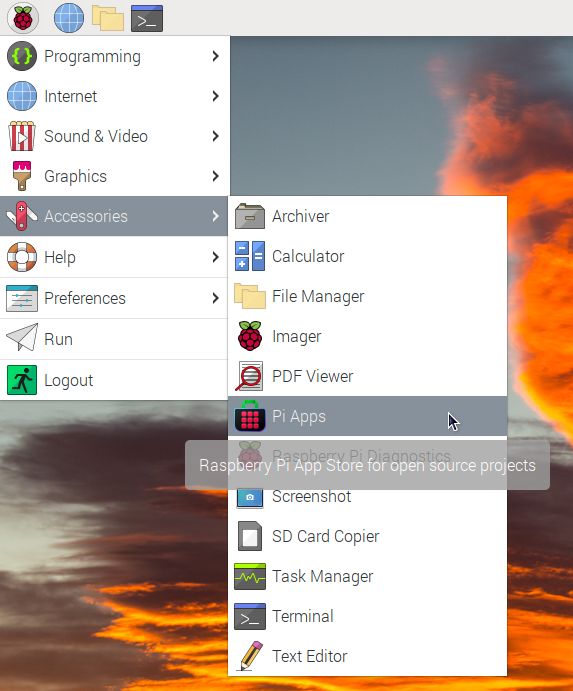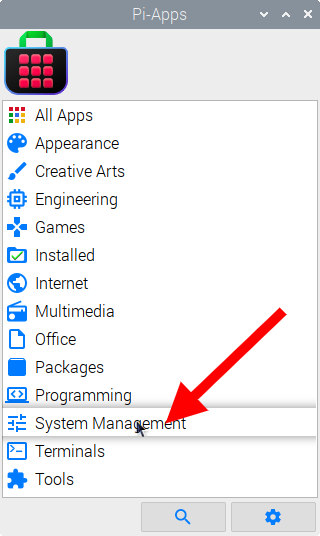Install  Fastfetch on
Fastfetch on  Raspberry Pi
Raspberry Pi
 Fastfetch
Fastfetch
Fastfetch is a neofetch-like tool for fetching system information and displaying it prettily.
It is written mainly in C, with performance and customizability in mind.To run in a terminal (with default options): fastfetch
Run with all supported modules and find what interests you: fastfetch -c all.jsonc
Find all data that fastfetch detects: fastfetch -s--format json
Display help messages: fastfetch --help
Generate config file based on command line arguments: fastfetch --arg1 --arg2 --gen-config
Fortunately, Fastfetch is very easy to install on your Raspberry Pi in just two steps.
- Install Pi-Apps - the best app installer for Raspberry Pi.
- Use Pi-Apps to install Fastfetch.
Compatibility
For the best chance of this working, we recommend using the latest version of Raspberry Pi OS, which is currently version Bookworm.
Raspberry Pi OS has 32-bit and 64-bit variants, both of which will run on most Raspberry Pi computers, including the Pi 3, Pi 4, and Pi5.
Fastfetch will run on either PiOS 32-bit or 64-bit.
Install Pi-Apps
Pi-Apps is a free tool that makes it incredibly easy to install the most useful programs on your Raspberry Pi with just a few clicks.
Open a terminal and run this command to install Pi-Apps:
wget -qO- https://raw.githubusercontent.com/Botspot/pi-apps/master/install | bashFeel free to check out the Pi-Apps source code here: https://github.com/Botspot/pi-apps
Install Fastfetch
Now that you have Pi-Apps installed, it is time to install Fastfetch.
First launch Pi-Apps from your start menu:

Then click on the System Management category.

Now scroll down to find Fastfetch in the list.
![]()
Just click Install and Pi-Apps will install Fastfetch for you!
Pi-Apps is a free and open source tool made by Botspot, theofficialgman, and other contributors. Find out more at https://pi-apps.io